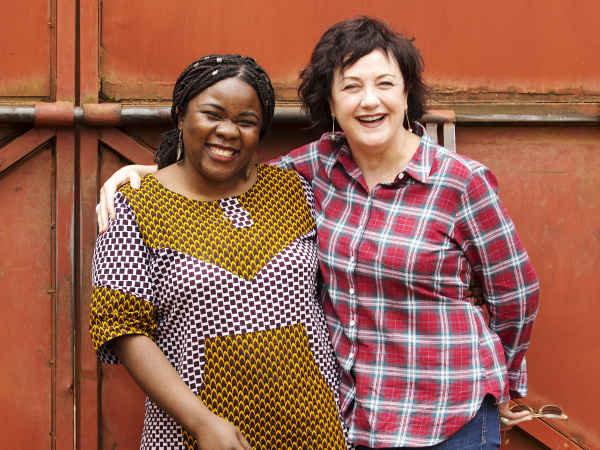Meet Dr Michael Chanekire
17 March 2020

The Democratic Republic of Congo (DR Congo) is one the most resource rich countries in the world. Amongst many precious metals such as copper and gold, it has around 80% of the world’s Coltan, a mineral essential to everyday items such as mobile phones, laptops and other household gadgets.

Unfortunately, its incredible mineral wealth has helped fuel decades of sexual violence. This is often used to terrorise and control whole communities and has led to the country being dubbed the rape capital of the world by the UN.
Dr Michael Chanekire
Dr Chanekire has been working in a hospital that specialises in treating communities affected by the widespread sexual violence in DR Congo for 12 years. He is married with five young children.
Dr. Michael Chanekire illustrates his life as a doctor in the Democratic Republic of Congo
I was trained by SCIAF in 2010 in gynaecological surgery and went on to specialise in fistula surgery. After this, I continued training with the senior doctor here at the time and spent two years studying in Belgium. I now also train other trainee doctors.
South Kivu, in DR Congo where I work
Since 1996, we have been the victims of several wars. There are armed groups here and in other areas too. It’s because of the many, many armed groups that so many women have been raped and come here for help.

Many people live in remote areas, with little or no health services. Every day, women are being raped and brutalised, some end up pregnant, some deliver in the forest with no help, and many end up with infections and fistula.
What is fistula?
Fistula is when urine comes through the sexual organ because the wall between this and the bladder and/or rectum has been torn. This can be a result of a violent sexual act. It can also occur when women are pregnant and deliver in the bush with no assistance.
As a result of the widespread sexual violence, many women and girls become infected with HIV and other sexually transmitted diseases (STDs). There are many cases of this.
I am not always able to determine the exact cause of the women’s injuries and the extent of the brutality they experienced as some are unable to speak about it. Many just say, ‘they took me’.
An example of one woman I recently treated
There was one woman who recently came here and said that non-identified soldiers or rebels, in green uniforms, got in the house, took her husband, killed him, and took the woman in the bush. In the bush she was raped by all the soldiers – whoever wanted to have sex.
She became pregnant and was eventually allowed to leave - traumatised, injured and in desperate need of help. Her story is not unusual and mirrors the many women and girls I treat every day.
How we are able to help
The woman had extensive internal injuries as a result of rape and STDs. She was screened, examined and then I delivered the child by caesarean.
At first sight of this case I remember feeling desolate but I couldn’t show it to her. She was so sad, you could read the shame and desperation on her face. She couldn’t even raise her face and look at people. She cried throughout the entire time she spoke.
Thankfully, at the hospital we have the equipment for fistula surgery that was provided by SCIAF in 2010 and were able to treat her.
Trauma counselling
After fistula we provide psychological support. The women are organised in self-help groups in their villages. I was able to refer the woman to a SCIAF funded trauma counsellor, who is helping her recover for the long-term.

Patients affected by HIV and other complications
People affected by HIV are able to come here for their drugs, which are free. We also do further examinations to ascertain other medical issues. Without the support from charities like SCIAF, none of this would be possible.

Our challenges
A big issue we face relates to replacing materials, such as surgical garments, saline drips, stitches, medication and painkillers. We also struggle to do refresher training for health workers. The equipment is now also getting old so we need to replace it.
 The community, especially the women and girls, are grateful for the work that we do here at the hospital. Some women, they want to give me a gift but I can’t accept it, I am just doing my job.
The community, especially the women and girls, are grateful for the work that we do here at the hospital. Some women, they want to give me a gift but I can’t accept it, I am just doing my job.

Dr. Michael Chanekire Doctor in South Kivu
By giving to SCIAF, you can help our life changing work around the world including programmes that support women affected by sexual violence in the DR Congo. We are providing medical care, trauma counselling, legal support, and financial advice so women can rebuild their lives and support themselves and their families.

His Archdiocese works closely with SCIAF to provide medical care and practical support for victims of sexual violence.

Thérèse Mema Mapenzi helps women who have suffered sexual violence in the Democratic Republic of Congo to be heard.

Justine speaks to us about her job how she is helping some of the world’s poorest communities.